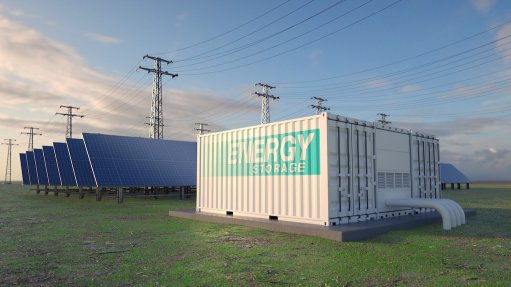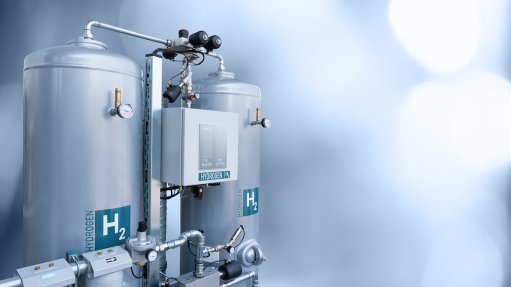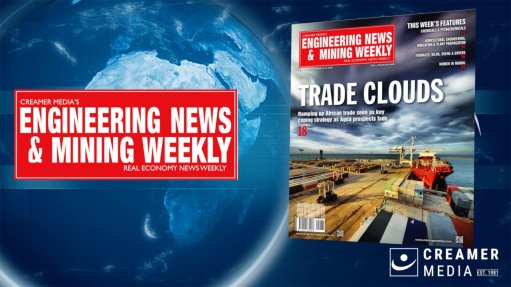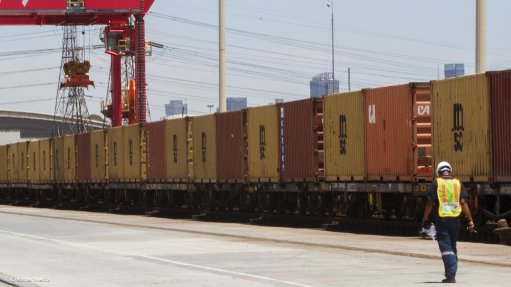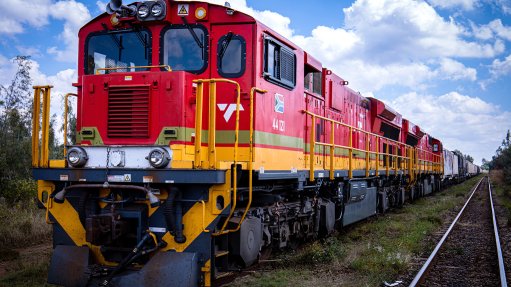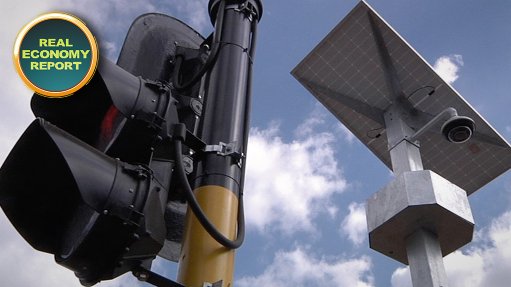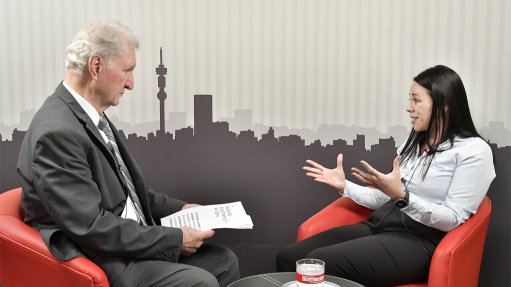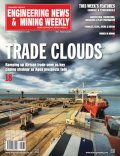Mining industry urged to embrace technological disruptions
Diversified miner Sibanye-Stillwater innovation head Alex Fenn has challenged the perception that the mining industry is resistant to change and disruption from technological advancements, noting several technologies that were poised to fundamentally change the way mining organisations operate in future.
“There is a perspective that, while disruption seems to be constant, we as miners and metals manufacturers seem broadly the same. I think that’s a little bit unfair to us,” he said.
Speaking at the Annual Wits Mining Institute Seminar, in Johannesburg, on September 28, Fenn said the value of curiosity was often overlooked in the mining and metals manufacturing industries.
He noted several areas of technological advancement that would herald major disruptions for the mining industry and encouraged delegates to see the benefits thereof.
3D PRINTING
Fenn said three-dimensional (3D) printing has potentially significant relevance to mining.
Mining operations often operate in remote areas, which means that the ability to manufacture spares on-site has numerous benefits, the first being that mining companies do not have to carry stock of numerous spares. Rather, they can simply print what they need when needed. Fenn believed that this would help mining companies reduce working capital in the future.
Another critical benefit is that 3D printing can decarbonise the supply chain.
“We ship a lot of things into our operations, they're often oddly shaped, they take up a lot of space on trucks, and there's a big carbon influence in logistics. If you're able to print everything on-site, you can ship raw materials, and that would then decarbonise the supply chain to your business,” he said.
Although Fenn did not foresee this being relevant in the short term, he said there was hope that it would become a useful solution in the medium term.
WIRELESS TECHNOLOGY
“If you don't have communication, you can't do much from a digital perspective. So, it is incredibly important for us,” Fenn said.
However, he noted two specific constraints with respect to communication in mining. The first being that mines often operate in remote areas where there is no established infrastructure.
“We need to consider how to establish it. It becomes incredibly expensive because these networks need to be both capable and redundant. People's lives, in some respects, will depend on it.”
Second, Fenn noted that it remained difficult to propagate signals underground. However, he said that the way that wireless technology was evolving would enable significant progression in the near future.
ARTIFICIAL INTELLIGENCE
Fenn highlighted how artificial intelligence (AI) and natural language processing had created the ability to interrogate large language models and get credible responses from something that feels almost human. He believed that these large language models would be incredibly important in the future.
“We have huge amounts of infrastructure, millions of different machines, and components may all have processes and procedures and policies associated with them. We keep all of these in books in rooms or in PDFs on computers, and the filing is not always that fantastic because everyone has their own way of naming things,” he said.
However, Fenn believed that if all of that information could be ingested and interrogated when required, it would substantially cut the time needed to address certain concerns.
“Imagine having the answer to a question just by asking,” he mused.
However, a limitation of AI currently is that it does not yet have the ability to retain and translate tacit knowledge not found in policies and procedures. This type of knowledge is based on personal experiences, intuition, and insights gained over time and is often deeply ingrained in workers’ collective expertise. It contrasts with explicit knowledge, which can be easily documented and transferred through written instructions, manuals or data.
“If you were able to put all that information together, you could retain the DNA, the essence, and the tuning ability for different infrastructure. We're looking forward to understanding how potentially we could do that. I'm not suggesting that we'll monitor everybody's calls and emails, but there's certainly a way in which we can retain tacit knowledge sets, which is the experience of the people that work in these operations,” he explained.
BLOCKCHAIN
Fenn believed that blockchain was important, but that it was often overlooked in terms of its true capability.
“Everyone talks about traceability. It's the immediate first step, and it's valid. It's a great way to move product. However, the power of the blockchain actually sits in a decentralised and immutable nature of the contract,” he explained.
He added that blockchain provided the possibility to decentralise decision-making and ensure that all decisions being made were recorded in a way that could not be changed.
Through this, Fenn believed that mining companies could decentralise much of the decision-making, provided it was structured appropriately and had appropriate governance measures in place.
“You'd be able to move from explicit control testing at a task level to implicit control testing at an architectural level, which means you don't have to review thousands of controls. You would rather review the code that is responsible for those controls,” he explained.
He believed this would amount to an exercise in reducing costs and boosting efficiency while also freeing up knowledge workers to focus on strategy and adding value beyond merely testing controls in the database.
“If we consider the same evolutionary progress that is required to revolutionise or disrupt mining, we understand that to get there we need to harness the collective intelligence of our organisation to improve the thousands of things we do daily to create superior shared value for all our stakeholders,” Fenn explained.
He said that a revolution in mining would not come from one significant technological shift but from the recognition that the mining industry needed many people to consider how to improve the way things were done.
“We need people to be curious about this change,” Fenn said.
Comments
Press Office
Announcements
What's On
Subscribe to improve your user experience...
Option 1 (equivalent of R125 a month):
Receive a weekly copy of Creamer Media's Engineering News & Mining Weekly magazine
(print copy for those in South Africa and e-magazine for those outside of South Africa)
Receive daily email newsletters
Access to full search results
Access archive of magazine back copies
Access to Projects in Progress
Access to ONE Research Report of your choice in PDF format
Option 2 (equivalent of R375 a month):
All benefits from Option 1
PLUS
Access to Creamer Media's Research Channel Africa for ALL Research Reports, in PDF format, on various industrial and mining sectors
including Electricity; Water; Energy Transition; Hydrogen; Roads, Rail and Ports; Coal; Gold; Platinum; Battery Metals; etc.
Already a subscriber?
Forgotten your password?
Receive weekly copy of Creamer Media's Engineering News & Mining Weekly magazine (print copy for those in South Africa and e-magazine for those outside of South Africa)
➕
Recieve daily email newsletters
➕
Access to full search results
➕
Access archive of magazine back copies
➕
Access to Projects in Progress
➕
Access to ONE Research Report of your choice in PDF format
RESEARCH CHANNEL AFRICA
R4500 (equivalent of R375 a month)
SUBSCRIBEAll benefits from Option 1
➕
Access to Creamer Media's Research Channel Africa for ALL Research Reports on various industrial and mining sectors, in PDF format, including on:
Electricity
➕
Water
➕
Energy Transition
➕
Hydrogen
➕
Roads, Rail and Ports
➕
Coal
➕
Gold
➕
Platinum
➕
Battery Metals
➕
etc.
Receive all benefits from Option 1 or Option 2 delivered to numerous people at your company
➕
Multiple User names and Passwords for simultaneous log-ins
➕
Intranet integration access to all in your organisation









